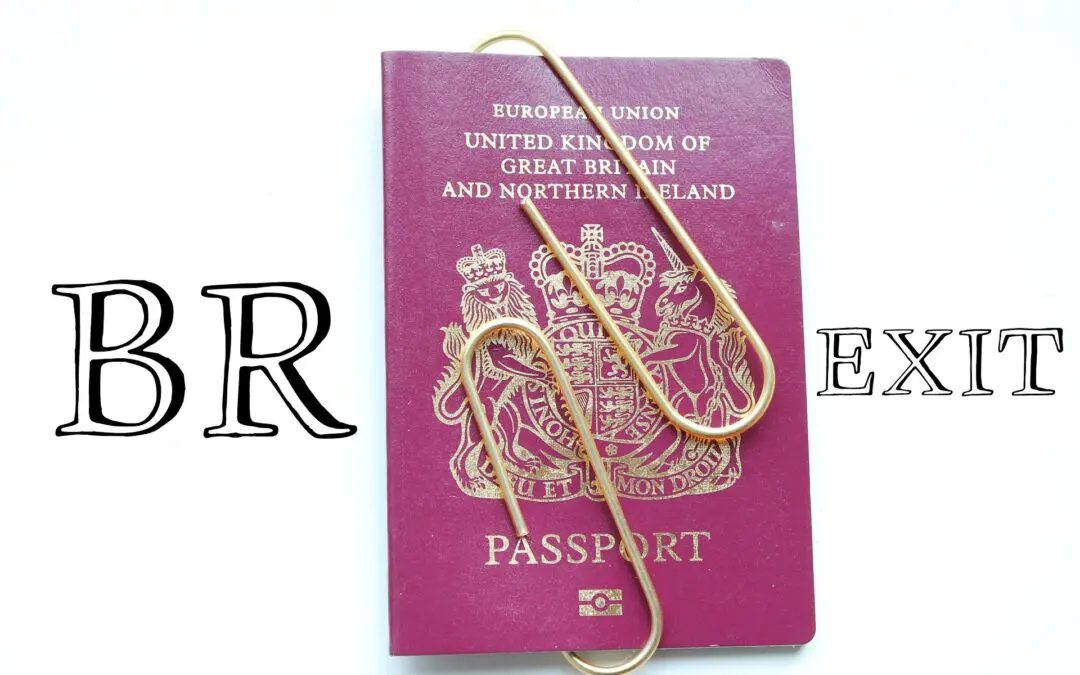As we all know, the UK has completely left the European Union…so what are the implications for the British who have a second home in France, or wish to continue enjoying time in France?
As a ‘third country’ visitor post-Brexit, you can now only spend up to 90 days in any 180-day period without a visa*.
If you want to spend more time in France, you have two general options: you can apply in advance for a visa for each extended stay; or unlock unlimited freedom of movement by becoming French resident.
This article addresses the case of ‘inactive residents’ or Britons not intending to work or be self-employed in France.
Enjoying longer stays in France, without working
If you wish to spend 6 months or more per year in France, you can apply for a temporary visitors’ visa – VLS-T – with the mention ‘visiteur‘ (visitor). This gives you the right to enter/exit France as you wish and stay between 4 and 12 months. The typical “Schengen Visa” which limits the stay to 90 days in any 180 day period. These temporary visas cannot be renewed in France, and you must return home to reapply at its expiration.
Do not confuse this temporary visitors’ visa with a long stay visitor visa allowing residency – the VLS-TS. You would apply for the latter if you have decided to make France your main residence (i.e. move here definitively), regardless if you plan to be in France full- or part-time. The French embassy or consulate puts this visa in your passport, and when you arrive in France, you validate it online with OFII and receive an appointment for a medical examination. After completing the validation and transforming the visa to a residency permit (titre de séjour), you can renew it annually in France.
To obtain a long-stay visitor visa, you must:
- Prove you have “sufficient” annual income to support yourself and any dependents
- Show a steady address in France for the duration of your stay
- Have adequate private health insurance cover for France (noting that you have the right to apply to join the state health system after three months’ stable residency)
- Apply at the relevant embassy or consulate in the UK in advance of moving
- Eventually, if applicable, register as a tax resident in France and meet your French fiscal obligations
Fiscal Residency
There is a lot of confusion about residency in terms of immigration and fiscal residency. In this article, we are discussing residency related to immigration, or your legal right to stay in France. Whether or not you are considered a fiscal resident of France, meaning you must declare your global income to the French tax authorities (not necessarily pay tax on it to France, however!) is determined by many different factors. The most common determinant is how much time you spend on French territory. If you spend over 183 days in the calendar year in France, you will most likely be considered a fiscal resident. Note: if you plan to join the state healthcare system, or benefit from French tax credits, you must be a French fiscal resident.
Visa & Carte de séjour applications
Renestance can guide you through your initial visa request (online – it’s easy). If you have decided to come here to live permanently and obtained a VLS-TS, we can help you validate it once you’re here, book your medical examinations, apply to enter the health service, apply for a driving license exchange (dependent on a yet-to-be- set Anglo-Franco agreement) and then help with your visa renewal to get your actual card version Carte de Séjour after one year’s residency.
And if you don’t already have a holiday home here, Renestance holds a French Real Estate license, so we can help you find and purchase your own little bit of France, or rent somewhere if you’d like to ‘try before you buy’!
Keep on top of the admin from across the miles
If you are unable to visit France or spend time here to sort out your paperwork, our Lifeline Support Service can help you remotely. Individual or bundled, this package gives you assistance and hands on support with any number of administrative tasks, ranging from car purchases, imports and registrations, to health insurance, business set-up and arranging new household installations.
Can we help?
If you are unsure of the documentation or steps you need to take to travel and enjoy time here, contact us and we’ll get right back to you!
Finding your French dream home
If you are still planning a move to the Languedoc Roussillon, our VIP New Nest Service is designed with you in mind. This comprehensive full installation service starts with assisting you through the decision-making stage, and accompanies you all the way through to one year after your arrival in France. Take this free short survey to help get some clarity on your project!
* This 90-day limit applies across the EU (within the Schengen zone), so you cannot pause or reset your days by crossing the border to spend time in another country. Once you have used up your allowance you will not be permitted to enter another Schengen country without a visa until you have spent enough time outside the area. Anyone caught overstaying could risk deportation, fines and a record in their passport that can complicate future travel and visa applications.
Relevant links & reference articles:
https://www.service-public.fr/particuliers/vosdroits/F302
https://www.service-public.fr/particuliers/vosdroits/F16162
https://france-visas.gouv.fr/en_US/web/france-visas/brexit
https://www.thelocal.fr/20200922/how-long-can-british-people-stay-in-france-after-brexit-without-becoming-a-resident
https://www.french-property.com/guides/france/finance-taxation/taxation/liability-income-tax/residency-status
https://www.connexionfrance.com/French-news/Brexit/Why-can-UK-holiday-home-owners-not-spend-six-months-in-France
Nicole is a bilingual Brit from Cambridge who has been living in the Languedoc since 2002 and is one of the first Renestance's Consultants. She knows how to get things done and can find the key contacts, having worked in real estate, managed two businesses of her own, and started a large social group for English-speakers in the area.
All articles by: Nicole Hammond




Ian
on 2021-06-01 at 11:06I could not find a suitable article to post this question, this one was the nearest I could find.
My wife has been stuck in England since December and will soon need to return to rendezvous with the prefecture in Poitiers to finalise withdrawal agreement residency. I have no rendezvous date fixed yet but our applications are being processed.
There appears to be no mention on the .gouv websites of a “compelling reason” for her to travel. My friends here say “she is coming home, she is allowed to travel” but she and I remain unconvinced.
Yes we are applying for permanent residency but we did not like many Europeans living in France hold a carte de sejour so I do not know if technically she is returning home even though she spent the previous two years to last December here.
Do you know of any comment of this from the interior ministry?
To complicate matters further we are a couple of 35 years but with no marriage or PACS, a marriage certificate might have made our lives much easier and my question would not be posed.
Hello Ian
I am replying publicly, so that others in the same situation may see this information. It really is quite simple; if you have applyed for your resident’s card (WARP card), then you are a resident of France, this is your home and you have freedom of travel. Many of our clients have returned from the UK to their French homes during these uncertain times, with no problems. Check this website out for up-to-date information – https://www.gov.uk/foreign-travel-advice/france/entry-requirements.
I hope this allays your fears!
Best regards
Nicole